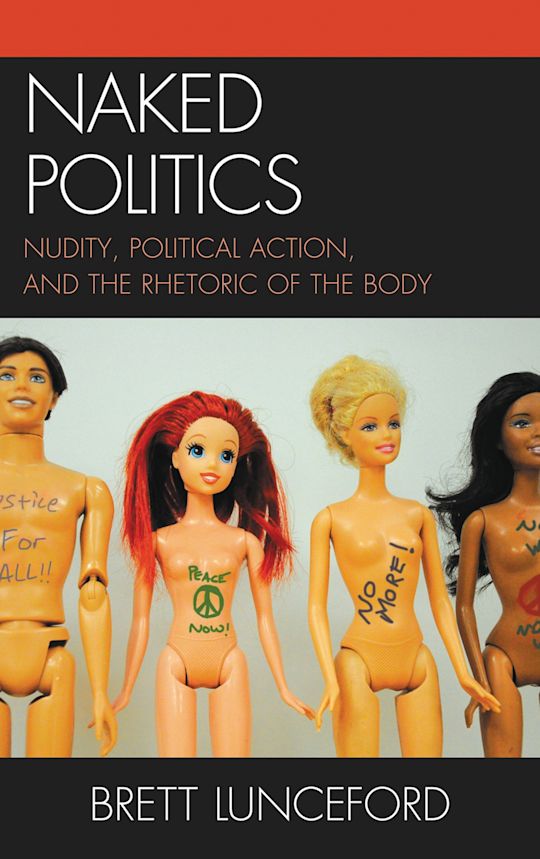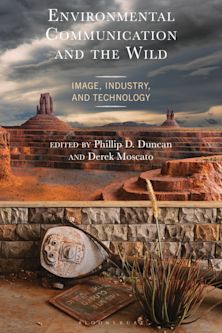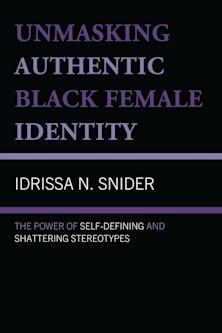- Home
- ACADEMIC
- Film & Media
- Film and Media Studies - Other
- Naked Politics
Naked Politics
Nudity, Political Action, and the Rhetoric of the Body
Naked Politics
Nudity, Political Action, and the Rhetoric of the Body
You must sign in to add this item to your wishlist. Please sign in or create an account
Description
Naked Politics: Nudity, Political Action, and the Rhetoric of the Body by Brett Lunceford, examines the rhetorical power of the unclothed body as it relates to protest and political action. This study explores what the disrobed body communicates, and how others are invited to make sense of this display. The actions examined range from grassroots protests to those of professionalized social movement organizations. Specifically, Lunceford examines PETA and the use of chained women and the Running of the Nudes; lactivists, or women engaging in public breastfeeding as protest action in both online and physical space; the World Naked Bike Ride’s worldwide protest against oil dependency and attempt to raise awareness of the vulnerability of cyclists; and a contest held on College Humor that invited women to write their preferred presidential candidate on their exposed breasts and send the picture to them to post on the site. Although these actions may seem to have little in common beyond their use of body exposure, they all share the notions that something can happen when you take your clothes off and that the act of disrobing can have social and political consequences. Moreover, these groups illustrate the often paradoxical views of the exposed body—by both the participants and the observers—and how such bodies operate in the public sphere. Even when the voice is silent, the body still speaks; Naked Politics considers what is being said.
Table of Contents
Chapter 2. Chained Women and Running Nudes: PETA's Body Rhetoric
Chapter 3. Weaponizing the Breast: Lactivism and Public Breastfeeding
Chapter 4. Can You See Me Now, Driver? World Naked Bike Ride
Chapter 5. Political Display and the Mediated Body: Exhibition and Politics on CollegeHumor.com
Chapter 6. Conclusion: The Nude Body and the Public Sphere
Product details
| Published | 14 Jun 2012 |
|---|---|
| Format | Ebook (Epub & Mobi) |
| Edition | 1st |
| Extent | 190 |
| ISBN | 9780739177020 |
| Imprint | Lexington Books |
| Publisher | Bloomsbury Publishing |
About the contributors
Reviews
-
Set within the foundations of rhetorical theory and critique as well as scholarship on social movements, Lunceford focuses on the body as a site of resistance and as a means of persuasion. . . Other scholars have done similar analyses of bodies as symbolic of protest messages, but none have done so extensively and so engagingly as Lunceford, who often attracts his reader’s attention with a personal story, then narrates and analyzes a moment of protest, at times by letting a protester tell his or her story, and finally speculates to what extent the display of nudity seems to convey the chosen message or how that message is misinterpreted or is distorted by the display itself . ... [T]he book [is] an enjoyable and informative read, covering some movements that [are very] familiar such as PETA and lactivism, and some that were new. . . particularly the political protests via CollegeHumor.com. Lunceford certainly has placed his study well within the rhetorical conversation about how bodies can convey rather sophisticated messages and resist normalization. . . . Lunceford. . . has excelled in analyzing how, with each such social movement, the body sets up a problematic and nuanced transaction between the viewer and the nude. The book should be welcomed not only by established rhetorical scholars, particularly those who do ‘‘body work,’’ but also by graduate students who need to encounter such scholarly conversations in their seminars.
Rhetoric Society Quarterly
-
Brett Lunceford's book is an excellent analysis of how people use their naked bodies rhetorically and politically as a means towards social change. It is inspired, rigorous and thought-provoking scholarship.
Explorations In Media Ecology
-
Tracing the naked body as a tool of protest across a range of political protests from the public sphere to online spaces, Brett Lunceford presents a beautifully-argued research which demonstrates the complexity through which naked body rhetoric emerges in the political scene today. Naked Politics provides a concise, historically-informed and highly-accessible analysis of the rhetorical power of nudity as a method of protest.
Rob Cover, The University of Western Australia
-
This insightful and fascinating close-up look at nude protest draws elegantly on a wide range of social and cultural theory. Moving through a series of well-chosen case studies, it is an intelligent exploration of the complexities and contradictions involved in choosing nakedness as a vehicle for protest.
Ruth Barcan, The University of Sydney

ONLINE RESOURCES
Bloomsbury Collections
This book is available on Bloomsbury Collections where your library has access.



































